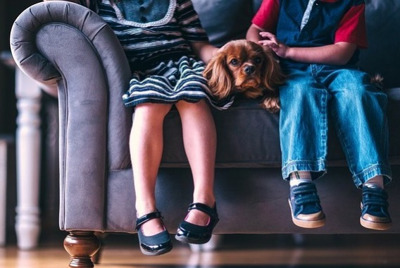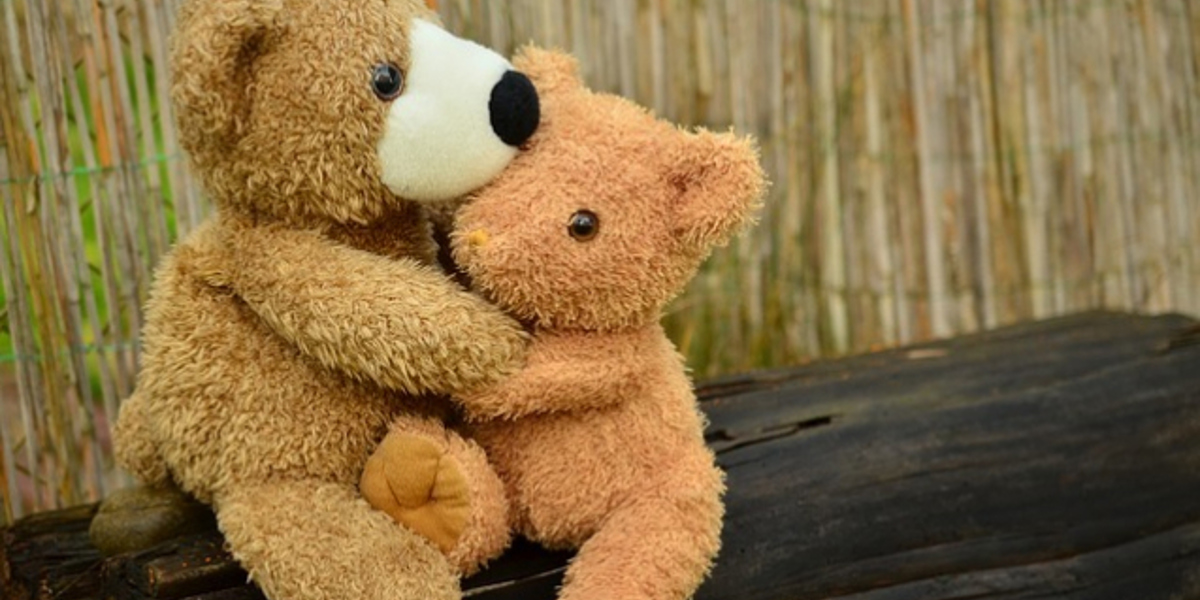
About bereavement
Bereavement refers to the whole process of grieving and mourning following the death of someone in your life, and is associated with a deep sense of grief and sadness. It is a natural process, but its impact can be overwhelming.
Many children and young people will experience the death of a family member, friend or pet. An estimate suggests that more than 100 children are bereaved of a parent every day in the UK (Winston's Wish).
All children and young people will grieve when someone dies. It is important to remember that each child and young person’s reaction will be different and may change over time. Grief doesn’t follow a set pattern of responses, and reactions will depend on many things including:
- their age and stage of development
- their relationship with the person who died
- the family circumstances
- the nature of the death
- their religion or culture
- their previous experience
- the behaviour of adults around them.
How children and young people understand death
- Children younger than 2 years old do not understand the concept of death. When someone dies, they are likely to show behaviours associated with separation anxiety, e.g. looking for the person and crying.
- Between around 2 and 4 years old, death is often seen as temporary and they may believe that people who die can come to life again.
- Between around 5 and 9 years old, children start to understand that death is permanent, but some may still think it is reversible.
- By around 10 years old, children and young people are likely to have a full understanding of death but may not be able to express their grief.
Things to think about
The reactions of children and young people to a death may cause a great deal of concern, and some families feel they should get extra help immediately. However, with the right support from the people around them, most children and young people will be able to cope and adapt to the changes.
Children and young people may experience a wide range of reactions in response to death, which are all natural and normal, including:
- emotional reactions - sadness, anger, guilt, anxiety, confusion, disbelief
- behavioural changes - sleep, appetite
- separation anxiety - worrying that something will happen to other family members means they won’t leave them.
Some reactions to death may appear contradictory, e.g. they may be upset one minute and then ask if they can go outside to play the next. This is normal and doesn’t mean that they don’t care or aren’t grieving. Remember that some children and young people may cry, whereas others may not.
A child or young person’s reactions to death are likely to be different depending on the circumstances. For example:
- if a death was expected, they may have been more prepared, and may feel relief
- a sudden death may come with shock and disbelief
- for a suicide, different emotions may be experienced, including guilt and blame.
Children and young people may want to get support from someone not directly affected by the bereavement, e.g. if their dad has died, they may talk to their teacher if they’re worried they’ll upset their mum.
Bereaved children and young people may also experience difficulties with their peers, e.g. they may be teased or asked difficult questions. Or, their peers may be worried about upsetting them or not knowing what to say to them.
When someone dies, families will have their own views about whether they want children and young people to be involved in the formalities, e.g. funeral, viewing the body. Formalities may help the child or young person to: accept the death, say goodbye, not be scared, feel included or share memories. Where appropriate, children and young people should be given information about the formalities, and supported in making decisions about their own involvement. It is important that they are not forced to do anything they are uncomfortable with.
Think about your response
Supporting a bereaved child or young person can be difficult, exhausting and overwhelming. Your experiences of how you or others have coped with bereavement may affect your response. To best support the child or young person, it is important to respond to them and their unique situation. If you are grieving yourself, make sure you also talk to someone if you need support.
What you can do
- Be patient. The child or young person will need time to adapt to what has happened.
- Spend time with them and listen to what they have to say when they are ready to talk.
- If you’re upset, don’t be afraid to show it. This can help the child or young person see that it’s ok for them to show how they're feeling.
- Talk openly as this will reassure them that it is ok to talk about death.
- Respect the views of the child or young person’s family.




